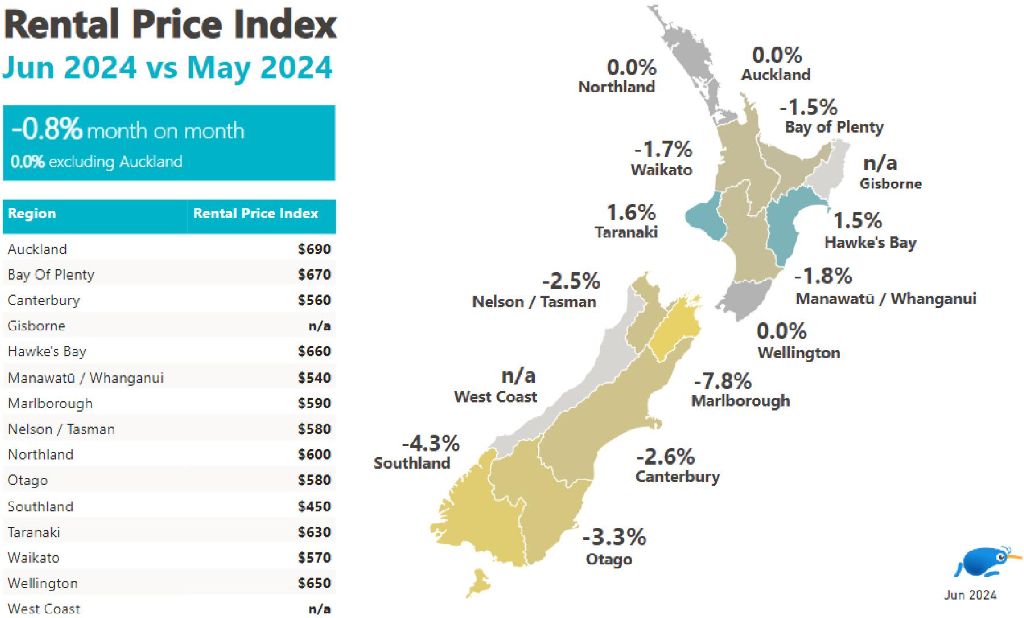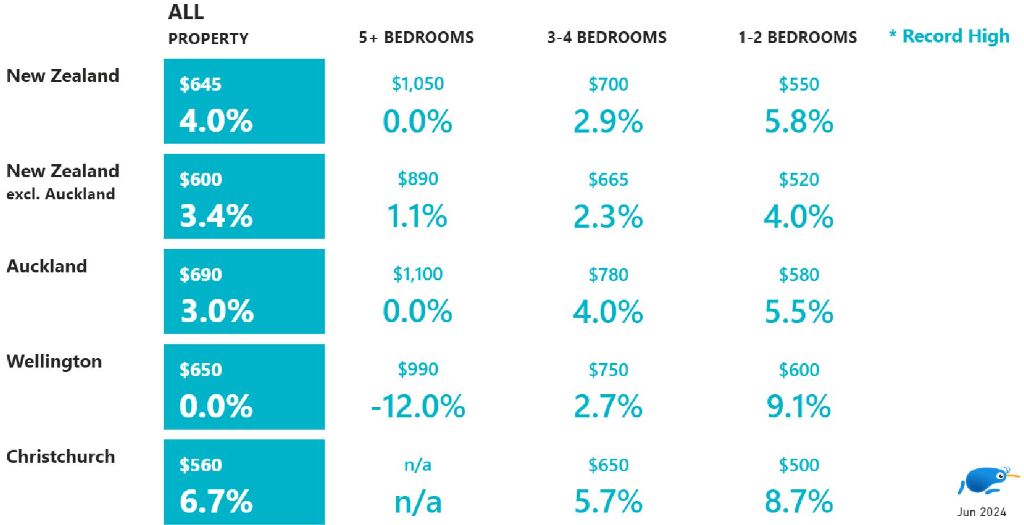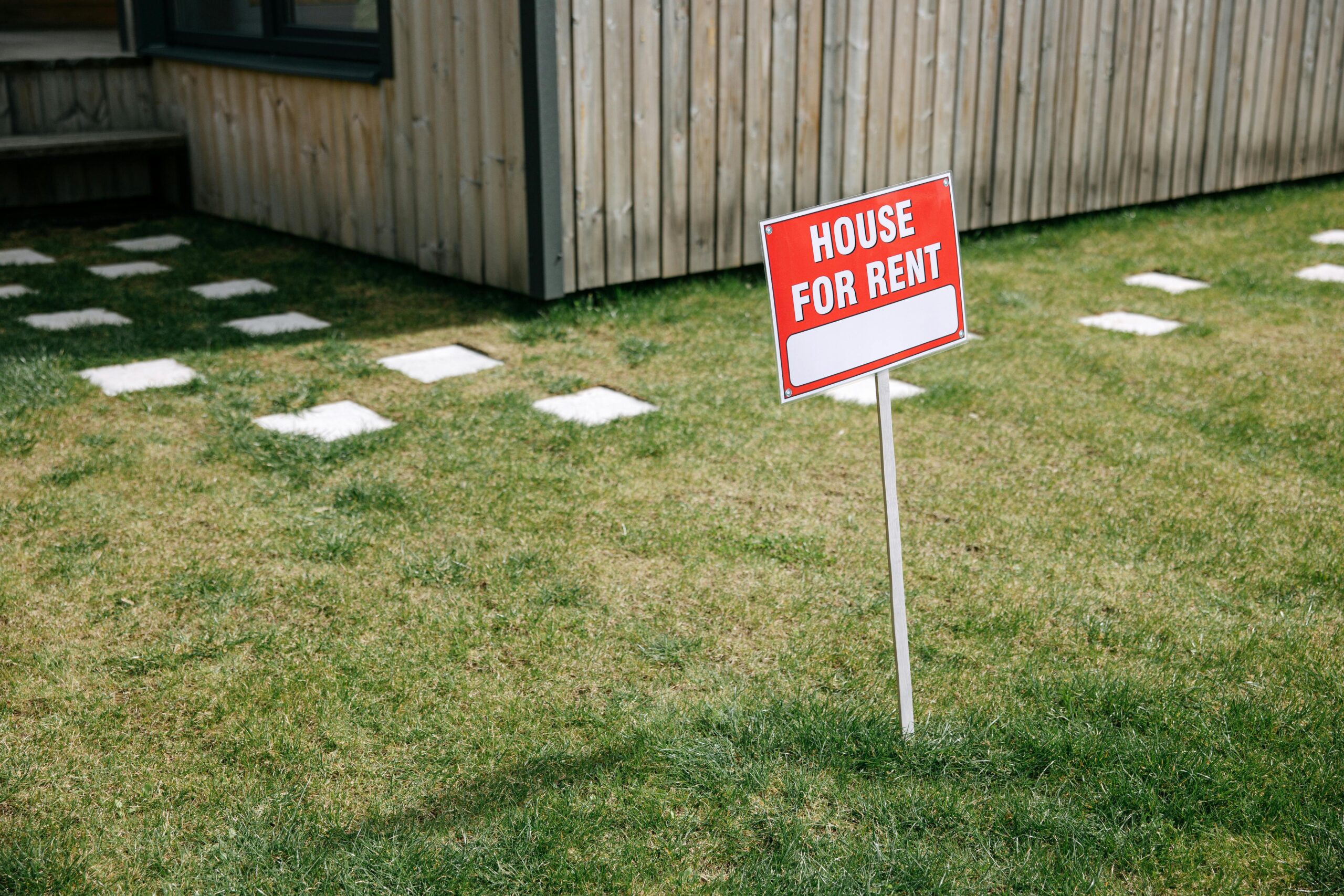
Rental prices in New Zealand have seen a slight decrease this month, marking the first drop since 2022. According to the latest Rental Price Index from Trade Me, the median weekly rent has fallen by $5 (0.8%), bringing it down to $645 per week.
Gavin Lloyd, the Property Sales Director at Trade Me, explained that an increase in available rental properties over the past three months has helped to lower rental prices. He noted that this month’s decrease is good news for tenants who have been dealing with high rents for some time. The drop in demand is partly due to many New Zealanders moving abroad for better job opportunities and higher salaries.

In Auckland, which remains the most expensive area for renting at $690, rental prices have stayed stable. However, most regions in the North Island experienced some changes, with the largest drop occurring in the Manawatu/Whanganui area, which saw a decline of 1.8%.
The South Island presents a different situation, as all regions except the West Coast experienced a decline in rental prices. Marlborough recorded the biggest fall at 7.8%, following a significant increase the previous month. Christchurch, which has maintained relatively stable prices, saw a decrease of 2.6% in June, bringing its median rent to $560.
Demand for rental properties has continued to fall for the eighth month in a row, down by 9% in June. Lloyd mentioned that it is common for demand to decrease during the winter months, as people prefer to stay put in colder weather. Additionally, the rising costs of moving have discouraged many from relocating, especially as general living expenses continue to rise.
Gisborne and Otago experienced the largest monthly drop in demand at 23%. Despite job cuts in the public sector in Wellington, the region only saw a smaller decline of 4% this month.
Overall, the number of available rental listings has decreased by 3% compared to the previous month, but there are still 28% more listings available compared to last year.
In Wellington, landlords are facing challenges attracting tenants for larger properties. The national median rent for homes with five or more bedrooms remained steady at $1,050 for June, but in Wellington, prices dropped by 12% to $990 per week. Lloyd suggested that landlords may need to lower rents for larger homes, as they are sitting vacant for longer periods. In contrast, the competition for smaller homes is driving prices up for one- and two-bedroom properties.
Smaller properties across the country have seen price increases, with Wellington City recording the highest rise of 9.1%, bringing the median rent to $600 per week. Christchurch also saw an increase of 8.7%, with rents reaching $500, making it the most affordable option among the three main city centers.

Source from Trademe
The opinions and research contained in this article are provided for information purposes only, are intended to be general in nature, and do not take into account your financial situation or goals.




